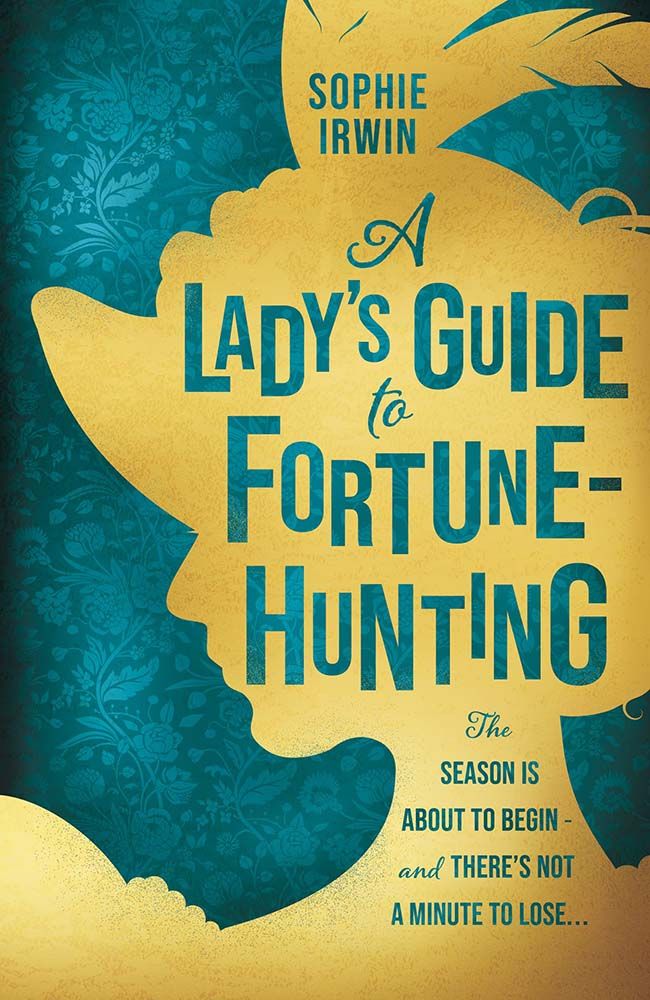You are viewing your 1 free article this month. Login to read more articles.
Sophie Irwin on her debut historical romance
 Natasha Onwuemezi
Natasha OnwuemeziTasha Onwuemezi is associate editor of The Bookseller and a freelance writer and editor.
A single man in possession of a good fortune is wanted in Sophie Irwin‘s début historical romance

Tasha Onwuemezi is associate editor of The Bookseller and a freelance writer and editor.
Sophie Irwin really loves historical rom-coms. I mean, she really loves them. “I absolutely love them to death,” she says. That’s a direct quote. The fiction editor-turned-début author (and consistent historical fiction fanatic) begins with a warning when she dials in to our chat: “I’m back at my parents’ this week and my dog is here cleaning his paws, so if you hear excessive sounds of grooming, that’s what’s happening.”
While I unfortunately didn’t hear any sounds from said dog—it was probably drowned out by our fangirling over “Bridgerton”—I did get the sense that Irwin is very, very tuned in to the historical fiction genre. “I can’t quite understand why everybody is not obsessed with it,” she says. “It’s the same reason why we love things like ‘Gossip Girl’, but it’s even better. It’s just fascinating to read about very privileged, rich, beautifully dressed people having silly conversations over tea. It’s so much fun because it’s so removed from what’s going on [at the moment] but you empathise with it. I think it’s the best escapism there is.”
There could be no better love letter to the genre than Irwin’s sharp, funny and endlessly readable début A Lady’s Guide to Fortune Hunting (HarperFiction). It follows Kitty Talbot, the eldest of five sisters, who, following the deaths of her parents, is left with a huge amount of debt. Whatever is she to do? Head to London in dogged pursuit of a rich husband, of course. “She has to use every little bit of practicality and problem-solving and ruthlessness to climb the ranks of upper-class London society and trick them all into thinking she is a genteel young lady of good birth and good family, and try and steal someone rich from under their noses,” Irwin explains. “The only person that can really see through her is Lord Radcliffe (imagine a swoon, if you will), who she hates, of course—she hates him! And romance ensues.”
I would do a bit of a voice from ‘The Crown’ or ‘Downton Abbey’ in my head and that would really help to get into the spirit of that very clipped Britishness
While fascinated with the genre, Irwin wanted to explore the intersection of gender, money and privilege during the socially rigid Regency era through the lens of our modern understanding of those themes. What would it be like if a woman was upfront and pragmatic about the need to marry in order to secure her future and that of her sisters? “It’s always quite interesting when it comes to gender because you have what sometimes can be interesting, old-school ideas about women and what women are allowed to want for themselves, and you never really have that many women in [historical rom-coms] that are sort of quite open and honest about the fact that they are after money,” she says. “Money is almost like the most unfeminine thing—being mercenary is usually so unsexy in historical rom-coms.”
With that in mind, the first scene that germinated in Irwin’s mind was an argument between Kitty and Radcliffe early on in the book, when they have their first “honest conversation” and Kitty bluntly outlines her difficult position to a haughty Radcliffe. “I was walking to work and imagining the horrible things that two characters like this might say to each other, and the idea for the book came out of that scene, basically,” Irwin says. “Unwrapping it from that point helped me to work out what would have got them there and where that would take them.”
With such a warm, witty voice underlying the book, it’s no surprise that Irwin’s favourite parts to write were the dialogue—particularly when characters are exchanging cutting words. “I love writing fight scenes,” she says. “It’s so satisfying for me because I so often in a fight will think of something to say like three days later and think, ‘Ah, I should’ve said that!’ So it’s really being able to do that and being able to embody characters who are so sharp they can just say exactly the most biting things in the moment.” She explains nailing the voice by “trying to do [her] best Austen impression” and says she had a relatable technique to help her out when she got stuck. “All of my family watched ‘The Crown’ over lockdown and after watching it, one of our favourite things to do was put on the Queen’s voice and just talk about our days using that hyper-posh voice. I have no idea why, but that really helped if I was struggling with a scene—I would do a bit of a voice from ‘The Crown’ or ‘Downton Abbey’ in my head and that would really help to get into the spirit of that very clipped Britishness.”
Irwin also has “so many, so many” other influences, including Jane Austen, P.G Wodehouse, Jasmine Guillory and Kevin Kwan, but ultimately, her number one is Georgette Heyer: “For me, [she is] the queen of the genre. She’s my favourite author, I wrote my dissertation on her; I’m obsessed with her.” Even with her confidence in the genre, Irwin still underwent a ton of research. “The whole of last year, I was just reading and reading and reading. I was looking at letters from the period—some of them brilliant, some of them so boring—just to try and get the words and the rhythm of how they spoke.”
A Lady’s Guide to Fortune Hunting was pre-empted by HarperFiction—“the sneaky devils”—before it went to auction. “They managed to get it really fast, which was really exciting... it will just be the maddest four days of my life forever.” Irwin previously worked in editorial at HarperFiction, so “there was a bit of cloak and dagger to send it in under a pseudonym”, and now she is working with her own team, “which is lovely” but a disorienting change of pace in her new role as an author. “I had this moment a couple of weeks ago where they brought me in to do a pitch to some of the sales team. Ten minutes before I had this wave of panic and I was like, ‘I haven’t prepared at all, I don’t know any sales history, I haven’t brought any comp jackets, I don’t know this, I don’t know that, I haven’t looked at the metadata, this is terrible!’ I had to really remember that I was the author and not the editor.”
Irwin is currently working on her second book (she signed a two-book deal with HarperFiction) and while it’s set in the same world and time, it’s a standalone novel. It follows a woman called Eliza, who is 30 and has married a rich man with a title out of convenience and for her family’s sake. Ten years into the marriage, her husband dies, leaving her with a title and a level of independence she has never had before in her life. “It’s not a time of life that Regency rom-coms really necessarily focus on: what you do when you’re at an age that we would consider really young, but they would consider ‘on the shelf’, ancient, no hope for her. But she’s rich in a way she has never been before and she’s in charge of that—it doesn’t belong to her father, it doesn’t belong to her husband. It’s hers and she’s single and really hot, and it’s about what she does next because it’s the first time she has ever been able to choose,” says Irwin.
Extract
“I see. And may I ask, my lord, if the only reason you protest to such a marriage is that you think me a fortune-hunter?”
He made an eloquent gesture with his hands. “Forgive me, do I need more of a reason than that?”
“Yes, I rather think you might—I am not sure why my practicality is so abhorrent to you.”
“Practicality?” he repeated. “You would call it that, rather than calculation—greed—manipulation? I’m afraid it is these far less honourable words that I would use to describe you, Miss Talbot.”
“Only the rich have the luxury of honour,” she said coldly. “And only men have the privilege of seeking their fortune on their own. I have four sisters who depend on me, and the professions open to women such as I—governess, seamstress perhaps—will not keep even half of them fed and clothed. What else am I to do but seek a rich husband?”
“You are heartless,” he accused.
“And you are naive,” she returned, her colour high.
The main takeaway from this interview is probably best summarised by Irwin herself: “Everyone should read historical rom-coms. They’re great!” You couldn’t do much better than starting with A Lady’s Guide to Fortune Hunting.










